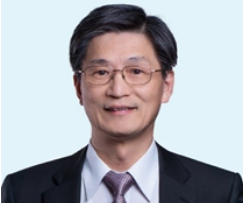Enhancing nuclear safety builds better performance
Did You Know?
Vol 30 No 2 2020
16 November 2020
Interview with Chien Fu-Tien Vice President & Chief Executive Officer, Nuclear Division at the Taiwan Power Company
 How do you describe your role in global nuclear performance and safety?
How do you describe your role in global nuclear performance and safety?
Nuclear energy is growing rapidly in only a few countries. Most nuclear countries are facing similar difficulties in the management of nuclear power. What are the major reasons for the difficulties in nuclear power management? I think all plant managers know that, the difficulties come from the rising investment costs in the safe operation of nuclear power, causing declining competitiveness for the nuclear industry.
What does this tell us? We can draw an important conclusion - nuclear operators must do a good job in nuclear safety management, if they want to improve their nuclear performance. The competitiveness and performance of the nuclear industry actually comes from nuclear safety management, and the results of such management.
What techniques do you use to inspire and connect with people in your organisation?
Regarding the key tasks of nuclear operation, the top priority is teamwork and team discussions, rather than creating individual heroes. In other words, for every task in nuclear energy, from operation to maintenance, every task is closely related. It takes teamwork to get the job done. That is to say, supervisors have to do one thing regularly, namely to recognise merits.
In terms of recognising merits for the team, I think we can use meetings to recognise teams that are doing well. Use public occasions to give awards to high-performing teams. When appropriate, we could even invite high-performing teams to have dinner together, so as to encourage them. As for recognising individuals, in addition to the promotions commonly used by supervisors, we can also send them abroad for further training.
What traits do you look for in leaders of your organisation?
A good leader needs to have three qualities. The first is regarding personal traits. For personal traits, we are looking for someone who is dutiful, and is always willing to serve. This is important. Secondly, in terms of capabilities, the leader should be good at communication, coordination, and integration. The third is the most important of all. It is what WANO has been talking about, and all of the managers have been talking about. It is accountability.
What advice do you have for current and future leaders in nuclear organisations around the globe?
If a nuclear leader would like to achieve the goals we are talking about today, namely in the issues of nuclear safety and performance, I think he has to do several things internally and externally. First, internally there are four things he must do. The first one is the most important thing, he must do a good job at nuclear safety management. By doing a good job at nuclear safety management, we can establish a learning organisation of safety culture, so that safety culture will be highly valued.
Secondly, after building a team with a good safety culture, the leader must place an even greater emphasis on the issue of equipment reliability. He has to improve the operation team’s fundamental skills regarding maintenance, to ensure the whole team does a good job on maintenance.
Thirdly, a leader has to keep pursuing the benchmark for excellence. He must create a benchmarking system.
And fourthly, a leader should improve the engineering management ability, so that the engineering management ability of the nuclear system can move forward more effectively.